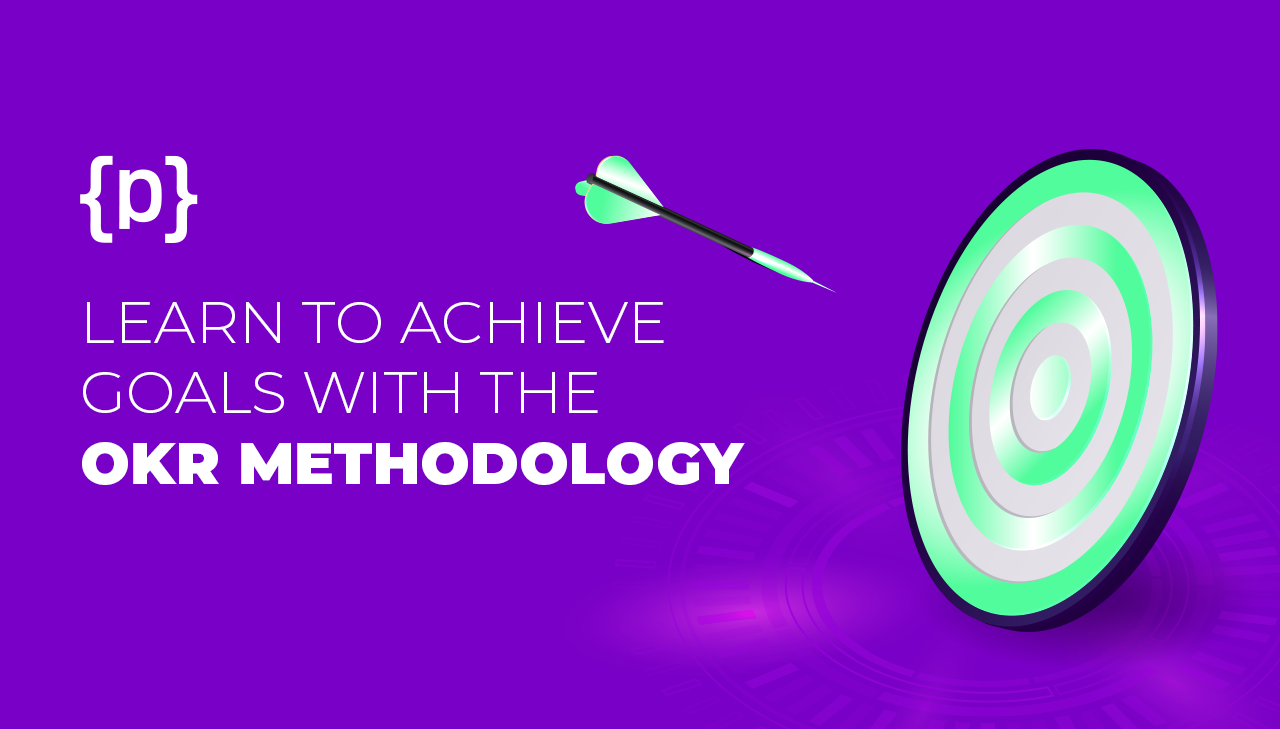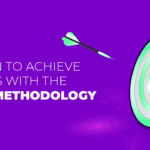In the business world, setting and achieving goals is essential to success. However, companies often struggle to turn their vision into tangible results. That is where the Objectives and Key Results methodology, known as OKRs, comes in.
In this article, we’ll explore what OKRs are, how this methodology came to be, how large companies use it, and provide practical tips from our experts to get you started implementing OKRs in your work.
What are OKRs?
The acronym “OKR” stands for Objectives and Key Results. It is an agile, results-oriented performance management model.
- Objective: what I want to achieve
- Key Result: how can I measure it
The methodology works as an internal communication tool, integrating teams through the formulation of objectives, helping to establish clear and measurable goals, and ensuring alignment of the entire team towards common business objectives.
Origin of the OKR Methodology
OKRs were developed in the 1970s by Andy Grove, former CEO of Intel. Later, large companies like Google, Twitter, LinkedIn, and others inside and outside Silicon Valley popularized the methodology and adopted it as part of their strategy and culture.
Today, many companies, from startups to global enterprises, use OKRs to drive performance and productivity.
Why implement OKRs?
OKRs are not just a goal management methodology. They are a business transformation and network mobilization tool.
Organizational culture uses OKRs to align goals at all levels, from corporate to individual. Performa_IT believes that OKRs help to answer the following questions clearly:
- What do we want to achieve as a company?
- What actions should we take (or not take)?
- Are our teams reaching their full potential?
Here are six tips from our experts to get you started on implementing OKRs in your work or team:
5 Practical Tips for OKRs:
1. Set challenging but attainable goals.
OKRs should be ambitious enough to drive growth and innovation. But they should also be realistic enough to be achieved within a set time frame.
2. It is possible to use OKRs even if your company does not use them.
Apply the methodology to your work, show the results, and the results will do the talking for you. Starting small will also make failing more manageable.
3. Failure is part of the process.
Start with what you have today and learn from your mistakes. Failure is real-life feedback that is part of our evolution.
4. Time is empirical.
Every company and every team has its own time to adapt and learn to mature with OKRs. The important thing is to start with what you have and improve from there.
5. Keep goals simple and measurable.
OKRs should be clear and easily understood by everyone. Use quantifiable metrics to measure progress and results.
The Importance of Knowing How to Use OKRs
In today’s fully VUCA job market, the ability to set and achieve goals is becoming a critical differentiator for those who want to grow and succeed. In addition, practicing this methodology is accompanied by developing other skills:
- Focus and direction: The ability to set clear and measurable goals develops planning and strategy skills.
- Company alignment: Understanding and applying OKRs allows professionals to align their individual and organizational goals.
- Transparency and Collaboration: OKR transparency fosters collaboration and teamwork, skills increasingly valued in the workplace.
- Measure results: The OKR methodology allows you to measure progress and results. Professionals who consistently set and achieve goals demonstrate accountability and tangible results.
- Adaptability and Agility: The methodology encourages quick adjustments and refocusing as needed. It promotes agility, adaptability, and the ability to adapt to change.
Conclusion:
OKRs are effective in driving corporate performance and productivity. Their ability to align teams around common goals has made them a valuable tool for professionals seeking to excel in organizations worldwide. By learning and applying the OKR methodology, you will gain essential skills for success.
The methodology helps eliminate bottlenecks between strategy and execution and shifts the focus from activity-based to results-based work.
It is a methodology for breaking down barriers between strategy and execution and driving a shift from activity-based to results-based thinking. Through the learning and application of this methodology, you will gain skills that are essential to being a success in your field.









